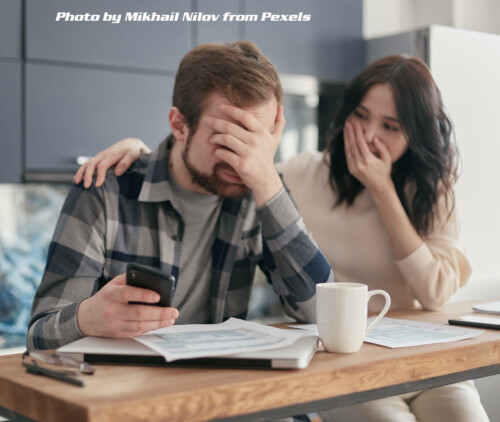Okay, so you messed up. Now what?
By Andy Kay
Okay. So you did something wrong. Maybe you made a social blunder; maybe you carried out some task and failed. In short: You messed up.
For people with low confidence, failure can be downright devastating.
I know. Because I used to be ashamed of things I did or said. All the time.
And I’m not talking about calmly realizing one’s wrongdoing and immediately learning from it. I’m talking an involuntary panic-anxiety-attack-like-muscle-spasms-complete-with-grinding-teeth-and-making-noises sorta sensation.
With an inner voice going like: “Screw you! You messed up, and you’re useless! You’re unable to do anything right, and you should be locked away! You messed up, and that’s all you’re ever gonna do!”
Every day, several times.
And it doesn’t even have to be something big. It could be a misused word, a social faux pas… anything.
When non-fident people react drastically to making any kind of mistake, it’s because non-fidence is often accompanied by low self-esteem, perfectionism, and insecurity.
When we have low self-esteem, we tend to judge ourselves more vigorously than we would our peers. If we don’t like ourselves, we’re hard on ourselves. Simple as that.
But moreover, if we don’t allow for ourselves to make mistakes, we develop perfectionism. Which, in turn, makes it seem so much worse to us when we do make a mistake. — Or even do something in a manner less than “perfect”. (Which, as I’ve written about before, is a BS notion.)
And then there’s the insecurity, which doesn’t allow for much space for mistakes, nor for even trying. This is governed by the amygdala — the reptilian part of our brain — most commonly known for our “fight or flight” mechanism.
See, amongst our primitive ancestors, social identity was way more important than today. Dangers were all around. If you messed up something, it could get you expelled from your tribe and thrown out into the wilderness on your own.
All of this perfectly illustrates the dangerous downward spiral of non-fidence. If we have low regard for ourselves we make less space for ourselves to make mistakes. This, in turn, causes making mistakes to be even more likely, which, then, will only lead to much more self-loathing and shame.
Because we DO make mistakes. Everyone makes mistakes. We know this perfectly well, yet tend to act like we’re the only flawed person alive.
But here’s the kicker:
Confident people make WAY many more mistakes than less confident people.
The more confident you are, the less regard you give to other people’s opinion about you. The higher you think of yourself, the less you worry about making mistakes. You know perfectly well that your rights outnumber your wrongs. You know perfectly well that you’re able to learn from your mistakes.
Indeed, if you don’t make mistakes, you can never learn. And if you don’t learn, you don’t grow.
In other words:
For every time you messed up something in life, you had the opportunity to learn, grow, and prevent yourself from making the same mistake again.
So get out there and mess up. Badly. Learn, improve, repeat. And as you learn and grow, watch as your confidence grows with you.
ACTION ITEM:
The next time you’re embarrassed about something, use the following method:
- Stop what you’re doing.
- Breathe. Ten long, deep breaths.
- Think. Realize that whatever negative response on your part are merely thoughts, and that they’re not necessarily true, constructive or favourable.
- Choose how you want to feel about what happened. Do you genuinely want to be ashamed? Or would you rather accept, learn, and grow?
The choice is yours.
Andy Kay helps people who are held back — by fear, overwhelm, anxiety, indecisiveness, anything. He knows what works and what doesn’t, and he doesn’t tolerate “spiritual” BS about “higher powers” and “purposes”. — We have access to all the power we need to achieve our own purposes; period. Visit https://www.getconfidencecoaching.com and get confidence and empowerment for free!
Article source: https://articlebiz.com
Articles posted on this site are the works of their respective authors. They may be for informational or entertainment purposes and do not necessarily represent the views of this website nor imply endorsement by this website, nor endorsement of this site by the authors, nor do we get paid for posting articles. Nothing herein is intended to diagnose, treat or cure any disease. Please do your research and seek professional advice before using any information.

